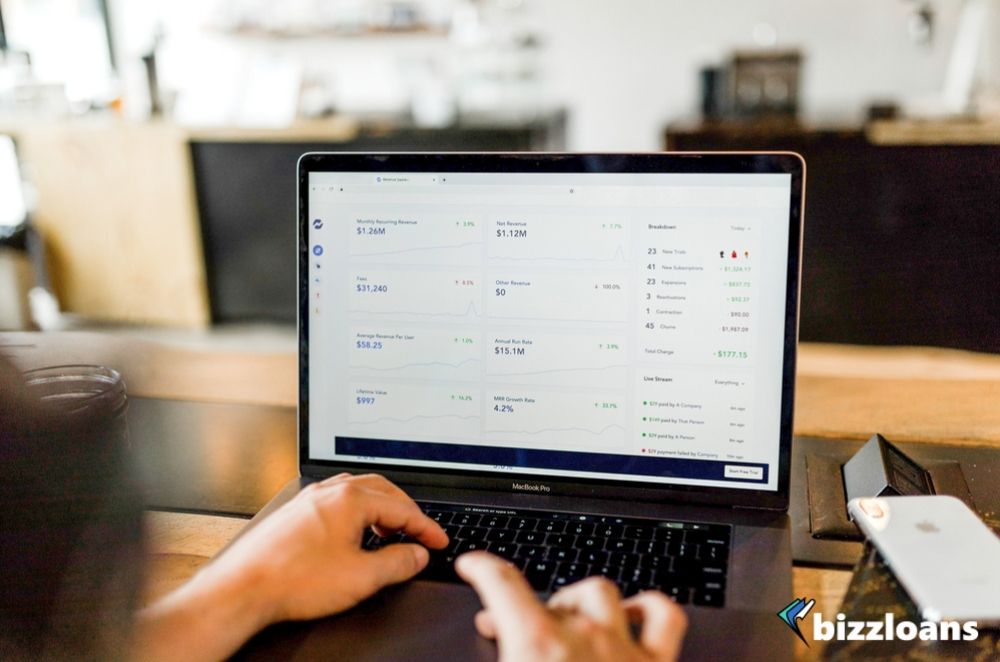With high hopes and spirit, Jessica launched her e-commerce store selling premium gadgets and textiles. During her first year, her store started earning a six-figure income, and she deemed all was going well. Jessica decided to scale her business on her own to double her current sales. However, it came as a total shock to her when she could no longer access her store.
When she had a technical expert assess what happened, she was told that her store had been hacked and a scammer stole the earnings. Because of that, she lost her data and platform and millions worth of savings. Eventually, she had to start again from scratch.
Jessica’s experience shows us the vulnerability of small businesses in particular to scams. That is why, if you own a start-up, you should spend a lot of time and effort in the security of your company. But how exactly do you protect your business from scams? Before we delve deeper into that, let’s first understand what scams are so you will know how to avoid them.

The Prevalence of Scams
Remember the 2017 Equifax data breach and the 11-year-old hacker? If a person as young as 11 could hack a high-profile website, that means business, whether big or small, are at risk of fraudulent activities.
According to the Better Bureau and Federal Trade Commission, nearly two-thirds of attacks are directed to small businesses, resulting in a financial loss of $7 billion annually. On average, small businesses suffer from a daily loss of $84 000-$148 000.
Sadly, 90% of small businesses don’t have any cyber protection up to this day.
Here are some of the tactics of scammers which you should keep an eye on:
- Scammers pretend to be someone you trust. They project themselves as trustworthy and believable by pretending to be connected with a company you’re aware of or a government institution. Sometimes, the scammer will call you and the way he talks and explains details makes him like a professional. A lot of people have fallen for this and lost their money!
- Scammers instill a sense of urgency. They prod you into making rash decisions before you even look into the offer. They won’t often give you time to understand what they are presenting and will justify their actions with urgency. For example, they say that you need to submit your bank details right away so you will not miss the deadline.
- Scammers resort to intimidation and fear. They tell you that something is about to happen and urge you to send payment before you get the chance to assess their claims. They will tell you things like your bank is about to close and you will lose your money; thus, you need to pay immediately to secure your savings. They take advantage of manipulating people and making them fearful, given that it’s a contagious and compelling situation.
- Scammers utilise untraceable payment methods. They usually require payment in the form of wire transfers, reloadable cards, or gift cards which are almost impossible to revert or track. Once you fall into this, it will be difficult for you or authorities to identify the perpetrator and retrieving your money may no longer be possible.
How Can I Protect My Business from Scams?
As mentioned in the previous paragraphs, scams do not only lead to profit loss but resolving them also entails valuable time. Moreover, scams damage your business reputation, and your customers may no longer trust you, fearing for their security as well.
Here are some ways to ensure that your business is well protected from scams and their negative impacts.
- Equip your Employees. Social engineering and phishing are two of the most common business scams primary targeting employees. These types of scams aim to trick employees into giving out business information such as login and password information, the numbers related to financial accounts, bank details, company email, and personal customer information.
That is why it’s important to raise awareness among your employees regarding the prevalent types of business scams. That includes social engineering and phishing. If you need to train as well, get an expert to teach you the best practices of email and data sharing. Among these are:
- Do not share sensitive information via email
- Always verify email requests for data with you or their supervisor. You can consult a technical expert on this matter.
- Avoid clicking links or downloading attachments from email addresses or senders that are not related to the company or its projects.
- Encourage your employees to talk to their fellow employees if they spot any unusual activity or scam. Scammers usually target different people in an organisation. Therefore, a warning from one employee about a fraud can alert others so as not to fall into deception.
- Double Check Invoices and Payments. Scammers resort to creating fraudulent invoices or making fraudulent payment requests. For instance, you may receive an invoice for an inventory shipping that was never received from what appears to be a registered source. Or, you may receive a delivery that you never purchased, followed by a request for payment.

There are also cases when a scammer may pose as a representative of a government agency such as the Internal Revenue Service. The scammer may inform you that you have unpaid taxes you need to pay immediately. Otherwise, your business license may not qualify for renewal, and you may even face legal action from their office.
Whenever you come across such possibilities, scammers are prodding you to skip diligence. So how do you protect your business from these types of scams? Here are some recommended ways:
- Carefully review and check all invoices. Don’t ever pay unless you are aware of the bill’s purpose or if you’ve verified that items were purchased and delivered.
- Before approving invoices or expenditures, make sure that procedures are clear and well-stated. To avoid the risk of a costly mistake, assign fewer people who are authorised to place orders, and pay invoices. Thoroughly review your processes to ensure that an unexpected email, invoice, or call will not trigger spending.
- Pay keen attention to how someone requests you to send payment. Tell your employees to do the same. If you are told to pay via wire transfer, reloadable card, or gift card, be wary! These are sure signs it’s a scam.
- Have an accurate record of payments for income and estimated taxes for the quarter, including property taxes, registrations for a business license, and other government payments. Doing so helps deter scams involving government agency imposters.
- Hold a Security Audit and Boost Cybersecurity. It’s difficult for small businesses to safeguard themselves against online scams if their employees are not aware of such problems. It’s imperative to conduct a security audit to enable cybersecurity experts in identifying weak spots in the system. Once identified, the team should patch them up to make it impossible or difficult for cybercriminals to attempt online fraud, including malware that demands a ransom before restoring files access.
For a lot of victims, paying a ransom to appease the perpetrators may seem like an easy way to get things done. However, it’s a costly remedy. In most cases, you don’t always get the supposed results. One study showed that only 45% of businesses that submitted ransoms after such hacks got their data back. And the worst thing about it? The average amount paid per company was $4,323!
That is why businesses must follow the recommendations of a security audit to strengthen their networks against fraudulent attacks. Cyber representatives might feel pressured at first, thinking that the issue is too challenging to address. But the prevalence and evident risks of online scams make setting preventive measures worth the effort.
Here are some proven strategies to boost your business’ cybersecurity:
- Ensure that wifi access is secure. Consider setting stringent measures on the privacy setting.
- Backup your data securely to protect it from ransomware threats.
- Enable multi-factor authentication to assess and verify login credentials.
- Install a firewall, antivirus, and anti-malware software on your computer and mobile device.
- Install a web filtering software to block access to and from potentially malicious pages and websites. Avoid clicking pop-outs and other unwarranted opt-ins.
- Create unique passwords and as much as possible, update them every 30, 60, or 90 days. You can make use of online tools to assess the strength and credibility of your password.
- If you are using an older computer model, consider upgrading your hardware to make them compatible with the latest cybersecurity software. Make sure that the applications you installed are also updated continuously, including the login credentials you have for online transactions.
- Set up a Company-Wide Password Policy. Implementing an organisation-wide password policy can significantly strengthen your business’ defense system from online scams. That’s because cybercriminals can bring more damage and can penetrate deeper into the system when they have passwords available compared to when they don’t.

As recommended, passwords should be long enough and should not use words found in the dictionary, including common languages and statements. You should also orient your staff for them to realise that it’s not secure to share passwords with colleagues or apply the same passwords across different sites.
Clients and staff use passwords to log into bank accounts, communication platforms, accounting software, and many other applications that could relay sensitive data and information. If your company does not have secure and best password practices, the damage scammers can cause through password-related activities increases.
To avoid that and boost your business security, try enabling a feature or tool that can activate two-factor authentication. Once you have that, users should know the proper string of characters and understand something, such as a temporary access code before they can access your site.
For instance, when application websites detect that a user is attempting to access an account from an unfamiliar device, they text or email the person a code to enter along with a password. Such a strategy signifies that having a password alone is not enough.
- Keep a Close Eye on the Signs of Online Payment Fraud. Once you assign representatives to attempt recognising signs of payment fraud, you’ll learn some surprising attributes.
For instance, a payment fraud does not necessarily consist of significant transactions and may appear as several smaller payments or continued attempts made from time to time. That can be challenging for small businesses. According to a 2018 study, four out of 10 small businesses struggle with cash flow problems. If fraudulent transactions go unnoticed for too long, they can aggravate such problems.
That is why the staff who handle bank accounts need to continually assess the associated records and alert the team of any suspicious activities. In relation, there should be rules and procedures on how employees should record purchases and have them approved. Doing so will make it easier to detect foreign transactions.
Businesses should consider investing in a machine learning software that learns the standard setup of regular account activity. In that way, it could give alerts when things are not aligned.
Conclusion
All businesses, whether a small business or a blue-chip, are susceptible to online fraud attacks. Fortunately, equipping yourself with the proper knowledge and having a keen understanding of the issue can go a long way in securing your business’ security. By being able to detect potential characteristics of fraud, you can set up strategic measures to address it.
The strategies above can help you identify which practices are best for your organisation. Moreover, these are the same strategies that successful and innovative companies have been applying through the years to cope with threats.
Apply them well, and you’ll notice a big difference in how your business system could effectively withstand the onslaught of fraudulent activities.
Looking for funds to increase the cybersecurity of your business? Get a free quote below to get the funds you need in protecting and growing your business.
No Security Necessary
The main thing that makes unsecured loans more attractive than secured loans is the fact that they’re no security. It might be an obvious thing to highlight but it clearly matters. You won’t be weighed down by the pressure and worry associated with having collateral hanging over you and potentially being lost to the lender if you fail to make repayments. If you don’t want to take the risk of losing your collateral, you just need to opt for an unsecured loan instead. It’ll allow you to avoid any risks associated with secured loans.
Build Up Your Future Credit Score
By taking out a loan and then paying it off on time, you will help to build or repair your credit score. Many companies are dealing with poor credit, but by taking out an unsecured loan with a lender that is happy to lend to companies with poor credit, you can start to turn the situation around. Meeting regular repayment deadlines shows the world that you are able to stay on top of your financial obligations and pay off the money you owe, and that will only help your business going forward.
Why Your Business Might Want to Take Out an Unsecured Loan
There are lots of reasons why your business might take out a loan, as well as reasons not to. You shouldn’t take out a loan to cover running costs, but if you want to do other things, such as the things we’re going to discuss below, an unsecured business loan can be ideal.
Grow and Expand
Most entrepreneurs have big plans for their businesses. They want to ensure that their business is one that’s got a bright future. So if the time has come for you to grow and expand your business, you should think about whether taking out an unsecured business loan might help you to do that. It could be exactly what you need to get your business moving in the right kind of direction. It takes money and investment to grow your business and a loan might just be the ideal solution.
Take on More Clients and Customers
If your business doesn’t currently have the resources to deal with more customers and clients, it could be time to scale things up. However, that’s something that costs money, whether you like or not. Taking out an unsecured business loan could help improve the resources your business has available. It could mean hiring more people so that you have the human resources needed to take on more clients and make more customers happy. The loan will cover the costs associated with doing that and it’ll pay for itself if you’re able to improve your profits as a result.
Fund a New Marketing Campaign
Maybe it’s the case that attracting new customers to your business is where your problems lie. It’s not always easy to get your voice heard and make people aware of why they should be taking notice of your business. An unsecured loan could be used to fund a new marketing campaign that gets your message out there and makes more people interested in your business and what it’s offering. So if you have an idea for a marketing campaign that you think might work but you don’t have the financing for it, consider a loan.
Improve with Fewer Risks
The chance to improve your business in the many ways mentioned above offers you a real opportunity that you might want to grasp. Secured loans can offer the same access to financing but come with more risks to your business. With an unsecured loan, you can reap all the rewards that come with having the cash to invest in your business without having to worry about the risks adversely affecting the business in the future. The chance to improve with fewer risks attached to that chance should not be ignored or dismissed.
The Requirements for Getting an Unsecured Business Loan

There are some requirements you’ll need to be aware of before you take out an unsecured business loan. These aren’t too harsh or restrictive at all, but they are important.
24 Month Limit
When you take out an unsecured loan from Bizzloans, you have to pay the loan back within 24 months. That’s the maximum repayment term that’s on offer. Of course, that won’t be a problem for the vast majority of businesses out there. It’s important that you look at the finances closely and decide for sure that this is something your business is going to be able to do. You’ll have a chance to do this when you get a quote from us, so you’ll know exactly what you’re signing up to.
Business Bank Statements
To ensure your business is in a financial position to take on a loan of the size you’ve applied for, you’ll need to simply submit your business’s bank statements. This allows us to ensure that we lend responsibly and don’t burden you with a debt that is too much for you to take on. It’s in both your best interests and ours that you’re able to handle the loan that you take on.
Photo ID
To ensure everything is correct and proper, and you are who you say you are, you have to submit a photo ID. This is common practice and ensures that all financial transactions are above board and in order. It’s very easy to do and needn’t be a headache for you. Once we are satisfied with your application, you’ve provided the bank statements and we’ve checked your ID, it won’t be long before you have access to the loan you applied for.
Getting an unsecured business loan for your company could be just what it needs right now. It’s a much safer option than taking out a secured loan and you’ll be accepted much faster. Don’t hesitate to get in touch with us here at Bizzloans if you’re thinking of taking out an unsecured business loan.


